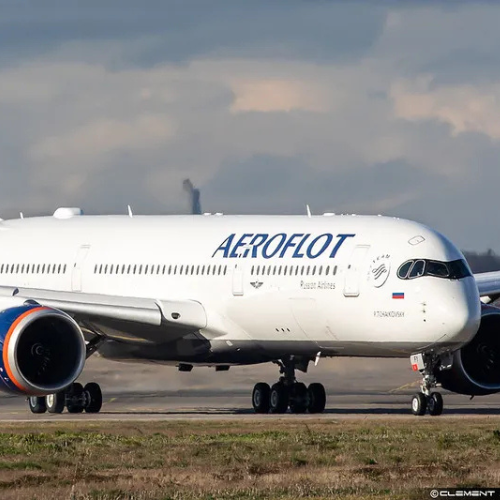Russia’s largest airline, Aeroflot, is making a dramatic move to deal with the heavy challenges it faces due to international sanctions. The airline plans to acquire old Boeing 737 cargo planes and scrap them for parts. This unusual strategy is being done to help the airline keep its operations running, as it struggles with a shortage of aircraft components and support from Western manufacturers.
Aeroflot’s Plan to Scrap Old Planes
Aeroflot is planning to purchase five Boeing 737-800BCF freighters, which are used for carrying cargo. However, these planes will not be used for flying passengers. Instead, the airline intends to take them apart and use their parts to keep other planes in the air. The parts Aeroflot plans to remove include engines, landing gear, avionics, and other important components that are necessary for aircraft to operate safely.
These particular planes are expected to be transferred to Pobeda, which is Aeroflot’s low-cost airline. However, it would be too expensive and complicated to convert these cargo planes into passenger jets. Western sanctions, which were imposed after Russia invaded Ukraine, make it much harder for Aeroflot to get the necessary parts and support from manufacturers in the United States, Europe, and other Western countries.
Impact of Western Sanctions
Since Russia’s invasion of Ukraine, Western countries have placed strict sanctions on Russia, targeting many industries, including aviation. These sanctions have made it much harder for Russian airlines to get the parts they need to maintain their fleets. Companies that make vital airplane parts, like engines and electronic systems, are no longer allowed to sell them to Russia. This has put huge pressure on Russian airlines, including Aeroflot.
Without access to new parts and support from Western manufacturers, Aeroflot and other airlines in Russia have had to find alternative ways to keep their planes in the air. Some have been forced to buy second-hand parts from older planes, which is why Aeroflot is now looking at scrapping old Boeing 737 cargo planes.
Russian Aviation Crisis: 30 Airline Companies Face Bankruptcy Amid Mounting Debts and Sanctions
The situation is so bad that many Russian airlines are facing the threat of bankruptcy. Reports suggest that around 30 Russian airlines, which make up about a quarter of all domestic flights in Russia, could be out of business by 2025 if they cannot find a way to keep their operations going.
The Strain on Russian Airlines
The financial strain caused by sanctions is affecting many airlines in Russia. One of the major issues is the problem with leasing. In 2022, after the sanctions were imposed, several Russian airlines stopped paying for their leased planes. This has caused disputes with leasing companies, many of which are based in Western countries. The airlines are unable to get the planes they need, or they are unable to pay for the ones they already have.
This has left many Russian airlines in a difficult position, as they can no longer rely on the international support they once had. The planes they already own are aging, and finding spare parts is becoming more and more difficult. As a result, some airlines have started to use old planes, like the ones Aeroflot is planning to acquire, to keep their fleets operational.
The situation for Aeroflot is a sign of just how much the aviation industry in Russia has been impacted by the sanctions. While Aeroflot is one of the largest airlines in Russia, it is still facing the same challenges as smaller airlines. These challenges are not only financial but also technical, as the airline struggles to maintain its planes without access to key parts from Western manufacturers.
In conclusion, Aeroflot’s decision to acquire old planes and scrap them for parts is a direct result of the harsh impact of Western sanctions. The airline is trying to keep its operations running, but the lack of access to new parts and support is making it a difficult task. Aeroflot’s move shows just how tough the situation is for Russia’s aviation industry and how the sanctions are forcing airlines to get creative in order to survive.


